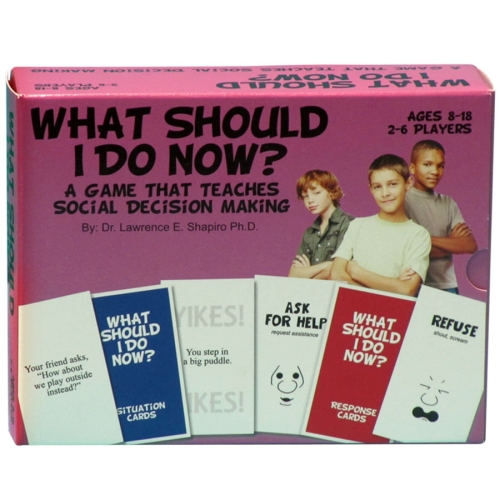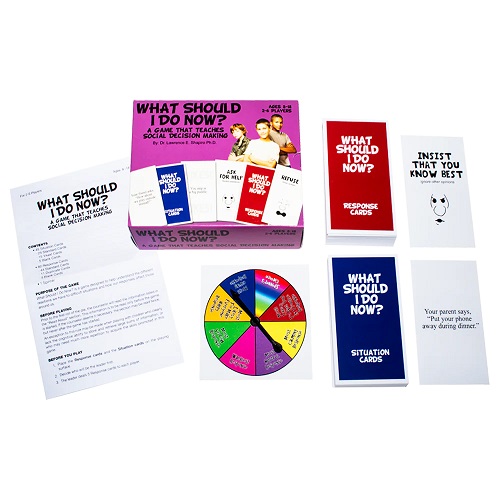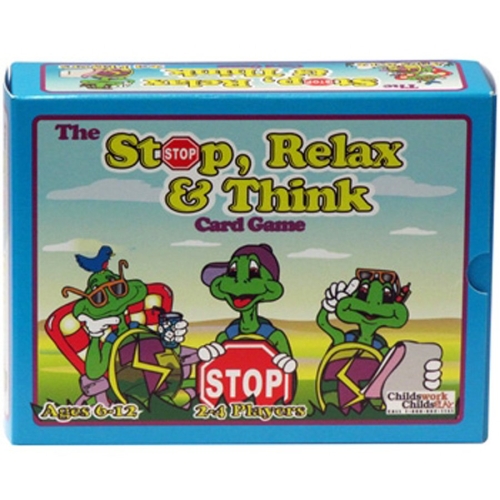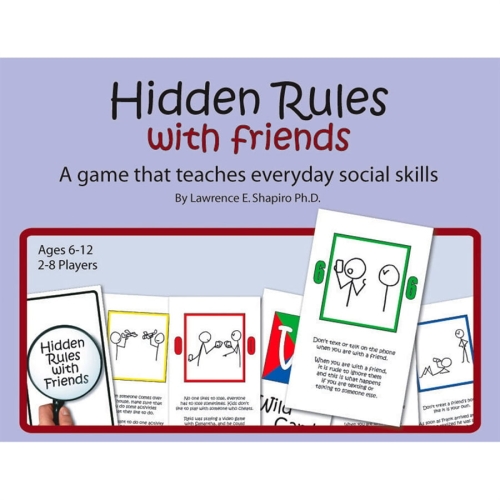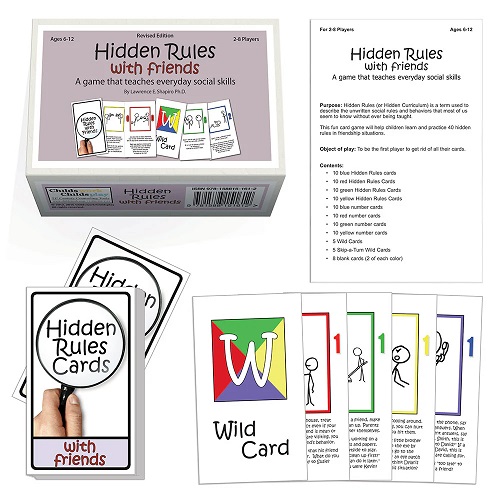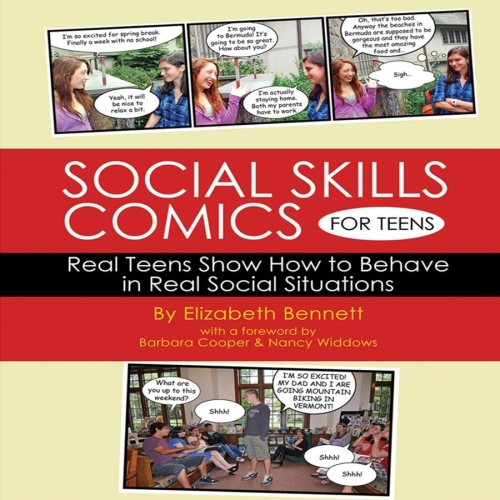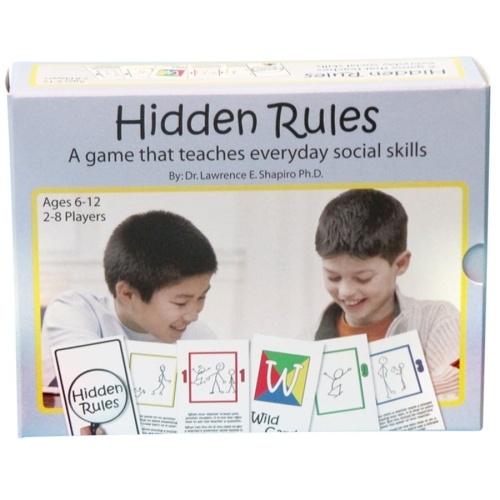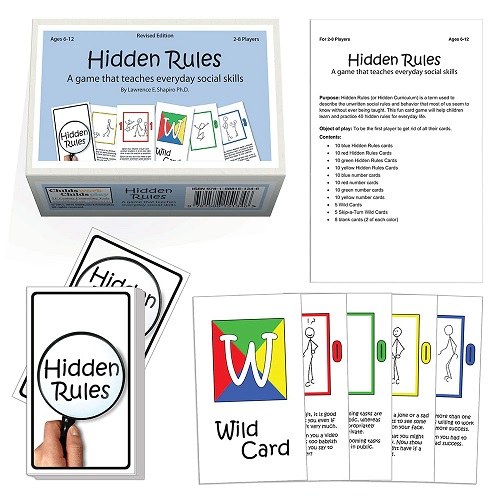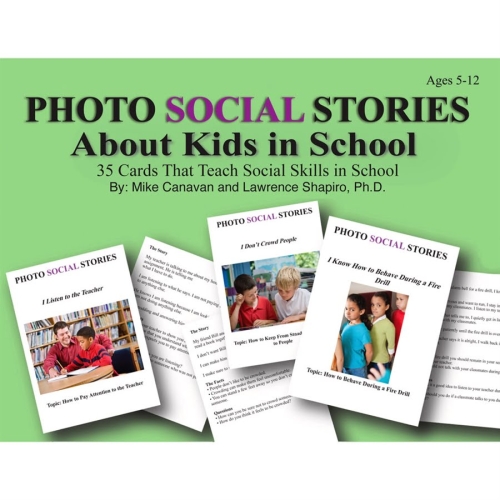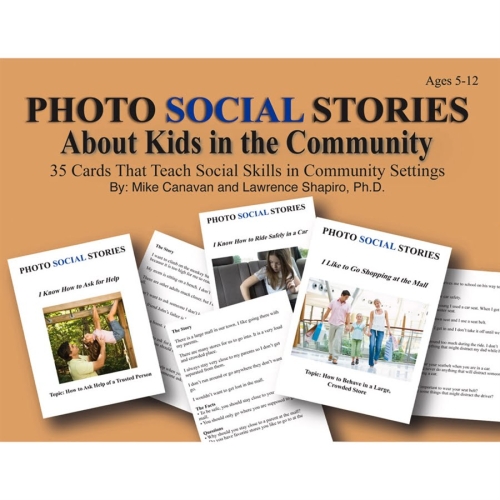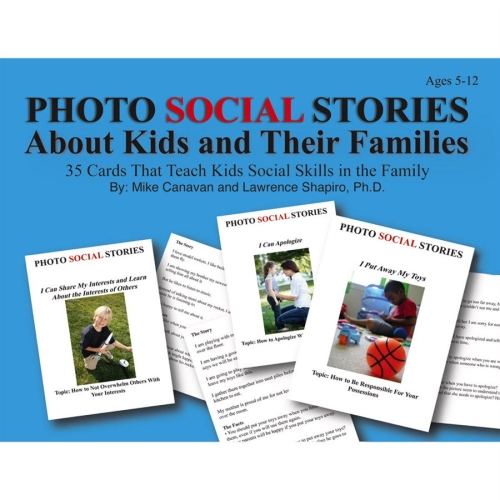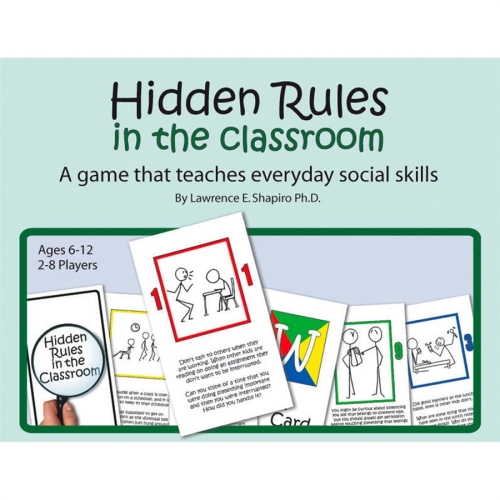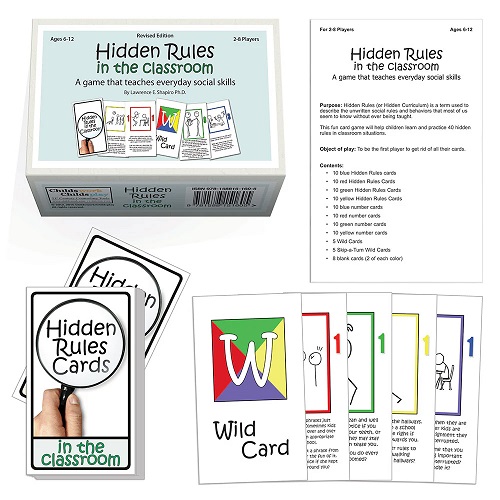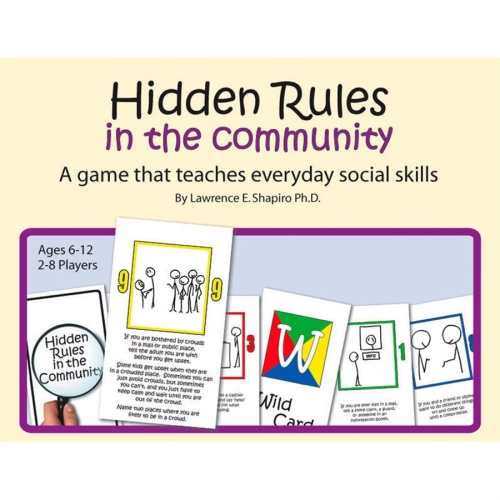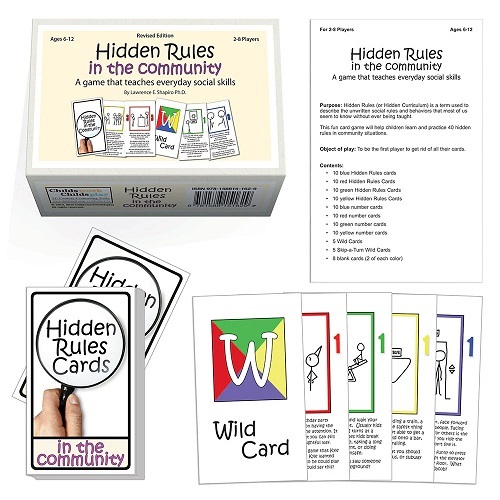-
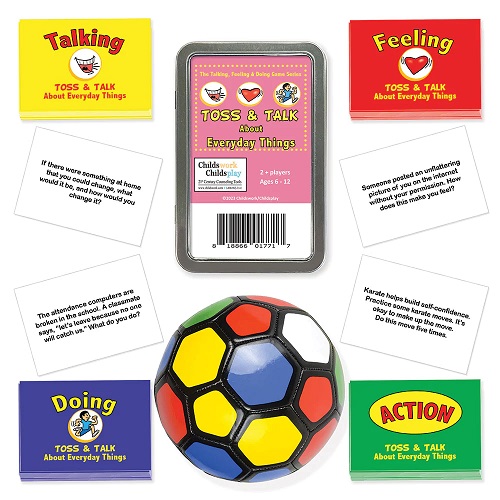 The Toss & Talk games are intended to help children reveal their concerns and conflicts to an adult who can provide both nurturance and guidance. You will know that the game has been successful when children begin to talk more freely about themselves and start to enjoy the interaction with a concerned adult. These games are theme-focused and are designed to focus on specific areas that are of concern to children.
The Toss & Talk games are intended to help children reveal their concerns and conflicts to an adult who can provide both nurturance and guidance. You will know that the game has been successful when children begin to talk more freely about themselves and start to enjoy the interaction with a concerned adult. These games are theme-focused and are designed to focus on specific areas that are of concern to children. -
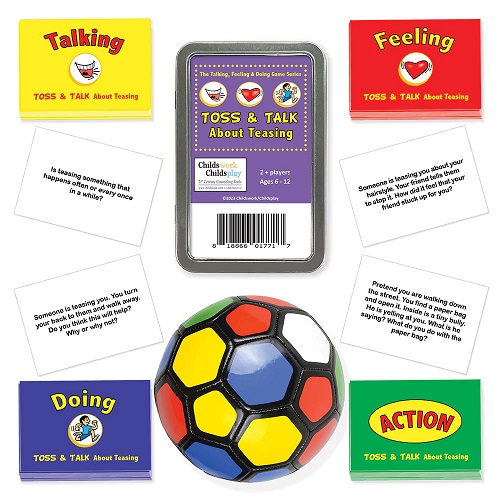 The Toss & Talk games are intended to help children reveal their concerns and conflicts to an adult who can provide both nurturance and guidance. You will know that the game has been successful when children begin to talk more freely about themselves and start to enjoy the interaction with a concerned adult. These games are theme-focused and are designed to focus on specific areas that are of concern to children.
The Toss & Talk games are intended to help children reveal their concerns and conflicts to an adult who can provide both nurturance and guidance. You will know that the game has been successful when children begin to talk more freely about themselves and start to enjoy the interaction with a concerned adult. These games are theme-focused and are designed to focus on specific areas that are of concern to children. -
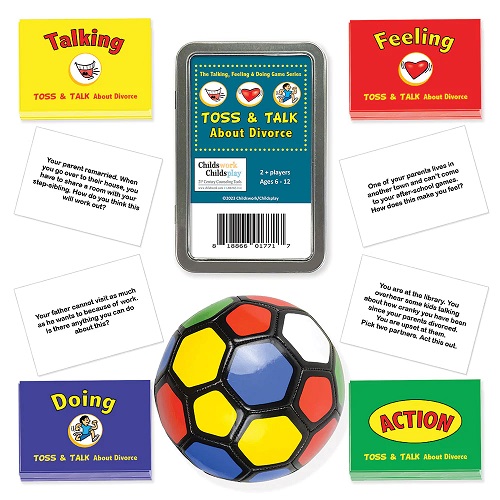 The Toss & Talk games are intended to help children reveal their concerns and conflicts to an adult who can provide both nurturance and guidance. You will know that the game has been successful when children begin to talk more freely about themselves and start to enjoy the interaction with a concerned adult. These games are theme-focused and are designed to focus on specific areas that are of concern to children.
The Toss & Talk games are intended to help children reveal their concerns and conflicts to an adult who can provide both nurturance and guidance. You will know that the game has been successful when children begin to talk more freely about themselves and start to enjoy the interaction with a concerned adult. These games are theme-focused and are designed to focus on specific areas that are of concern to children. -
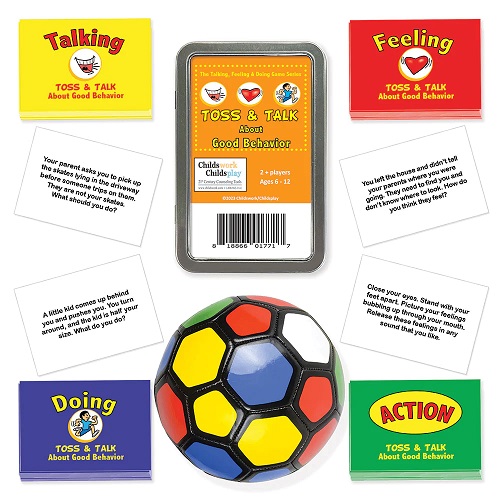 The Toss & Talk games are intended to help children reveal their concerns and conflicts to an adult who can provide both nurturance and guidance. You will know that the game has been successful when children begin to talk more freely about themselves and start to enjoy the interaction with a concerned adult. These games are theme-focused and are designed to focus on specific areas that are of concern to children.
The Toss & Talk games are intended to help children reveal their concerns and conflicts to an adult who can provide both nurturance and guidance. You will know that the game has been successful when children begin to talk more freely about themselves and start to enjoy the interaction with a concerned adult. These games are theme-focused and are designed to focus on specific areas that are of concern to children. -
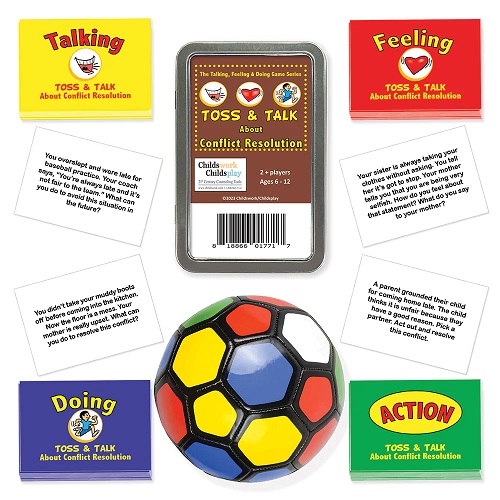 The Toss & Talk games are intended to help children reveal their concerns and conflicts to an adult who can provide both nurturance and guidance. You will know that the game has been successful when children begin to talk more freely about themselves and start to enjoy the interaction with a concerned adult. These games are theme-focused and are designed to focus on specific areas that are of concern to children.
The Toss & Talk games are intended to help children reveal their concerns and conflicts to an adult who can provide both nurturance and guidance. You will know that the game has been successful when children begin to talk more freely about themselves and start to enjoy the interaction with a concerned adult. These games are theme-focused and are designed to focus on specific areas that are of concern to children. -
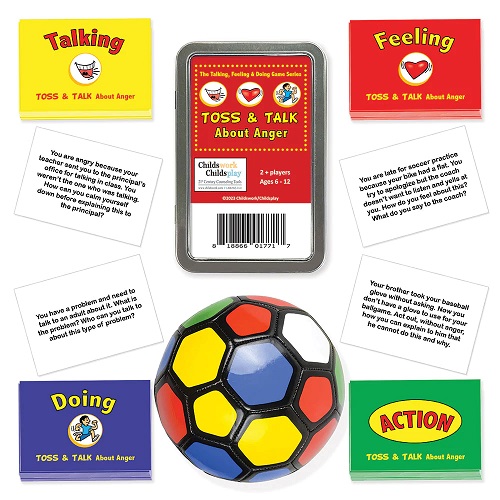 The Toss & Talk games are intended to help children reveal their concerns and conflicts to an adult who can provide both nurturance and guidance. You will know that the game has been successful when children begin to talk more freely about themselves and start to enjoy the interaction with a concerned adult. These games are theme-focused and are designed to focus on specific areas that are of concern to children.
The Toss & Talk games are intended to help children reveal their concerns and conflicts to an adult who can provide both nurturance and guidance. You will know that the game has been successful when children begin to talk more freely about themselves and start to enjoy the interaction with a concerned adult. These games are theme-focused and are designed to focus on specific areas that are of concern to children. -
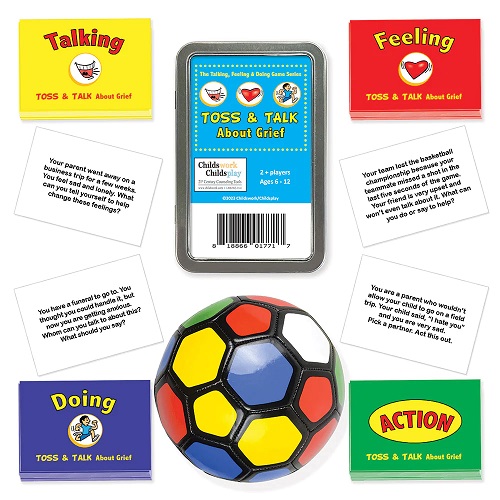 The Toss & Talk games are intended to help children reveal their concerns and conflicts to an adult who can provide both nurturance and guidance. You will know that the game has been successful when children begin to talk more freely about themselves and start to enjoy the interaction with a concerned adult. These games are theme-focused and are designed to focus on specific areas that are of concern to children.
The Toss & Talk games are intended to help children reveal their concerns and conflicts to an adult who can provide both nurturance and guidance. You will know that the game has been successful when children begin to talk more freely about themselves and start to enjoy the interaction with a concerned adult. These games are theme-focused and are designed to focus on specific areas that are of concern to children. -
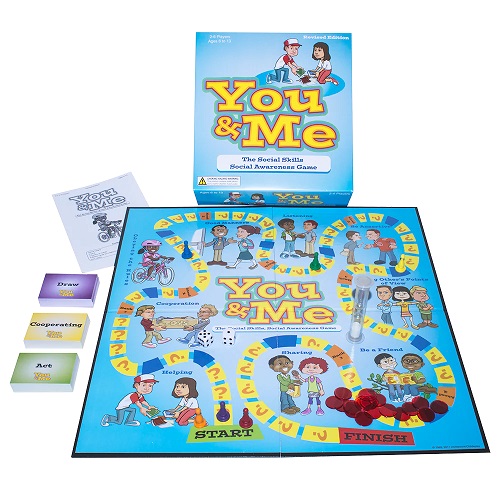 A cooperative board game that teaches day-to-day social skills and social awareness. Designed to help children become socially aware of the world they live in, as they build the social skills they need in everyday life: helping, sharing, being polite, cooperating, understanding different points of views, listening, following rules, acting assertively, and being a friend. Players work as a team, there are no individual winners.
A cooperative board game that teaches day-to-day social skills and social awareness. Designed to help children become socially aware of the world they live in, as they build the social skills they need in everyday life: helping, sharing, being polite, cooperating, understanding different points of views, listening, following rules, acting assertively, and being a friend. Players work as a team, there are no individual winners. -
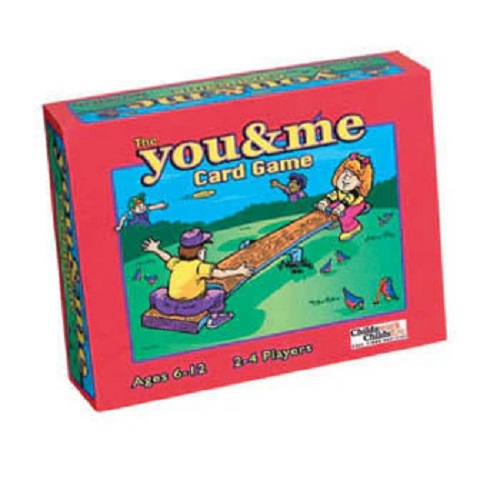 Created by Lawrence E. Shapiro, Ph.D. This card game is designed to simulate a standard 52-card deck - with a twist! Instead of numbered cards there are 13 different children and instead of the four traditional suits there are four social skills areas - Having Fun, Inviting a Friend, Talking, and Solving a Problem. As children play the game, they make up stories that demonstrate social awareness using the 13 different character cards. The instructions suggest four ways to play, but these entertaining cards can be used in dozens of other creative ways.
Created by Lawrence E. Shapiro, Ph.D. This card game is designed to simulate a standard 52-card deck - with a twist! Instead of numbered cards there are 13 different children and instead of the four traditional suits there are four social skills areas - Having Fun, Inviting a Friend, Talking, and Solving a Problem. As children play the game, they make up stories that demonstrate social awareness using the 13 different character cards. The instructions suggest four ways to play, but these entertaining cards can be used in dozens of other creative ways. -
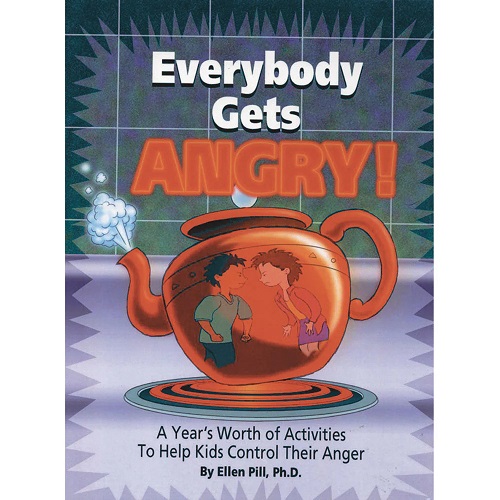 This fun-filled book is packed with 52 reproducible activities to help youngsters learn to identify, understand, express, and cope with their angry feelings. The hands-on activities use art, music, drama, and movement and are designed to get kids thinking about their own anger cues and the way in which they express their anger. You won't run out of activities to help youngsters focus on gaining control of their anger before it takes control of them.
This fun-filled book is packed with 52 reproducible activities to help youngsters learn to identify, understand, express, and cope with their angry feelings. The hands-on activities use art, music, drama, and movement and are designed to get kids thinking about their own anger cues and the way in which they express their anger. You won't run out of activities to help youngsters focus on gaining control of their anger before it takes control of them. -
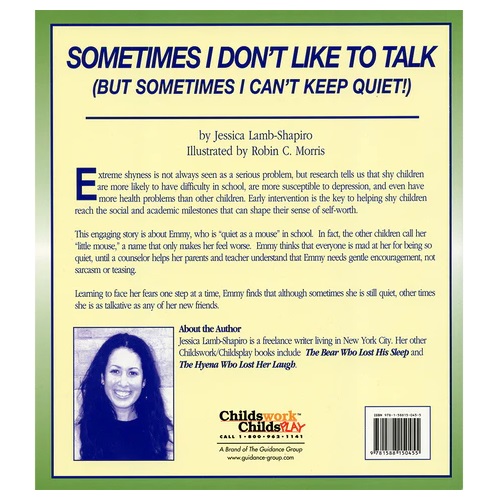
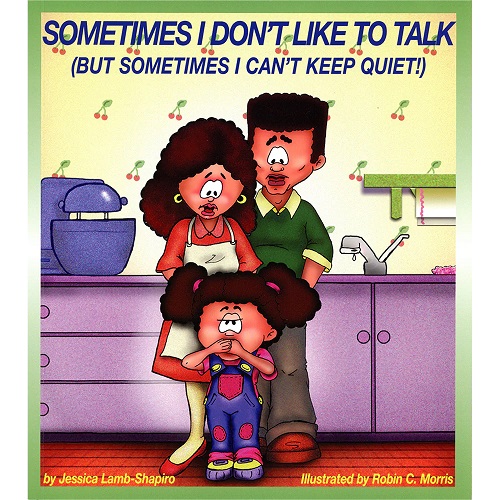 Extreme shyness is not always seen as a serious problem, but research tells us that shy children are more likely to have difficulty in school, are more susceptible to depression, and even have more health problems than other children. Early intervention is the key to helping shy children reach the social and academic milestones that can shape their sense of self-worth.
Extreme shyness is not always seen as a serious problem, but research tells us that shy children are more likely to have difficulty in school, are more susceptible to depression, and even have more health problems than other children. Early intervention is the key to helping shy children reach the social and academic milestones that can shape their sense of self-worth. -
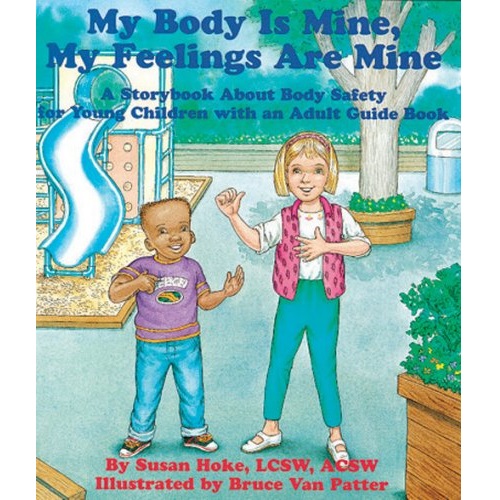 A Storybook About Body Safety for Young Children with an Adult Guidebook. This engaging storybook for young children is written to teach them important information about protecting themselves from the possibility of sexual abuse. It is recommended that the adult guidelines be read before you read this storybook with young children. 78 pages, soft-cover.
A Storybook About Body Safety for Young Children with an Adult Guidebook. This engaging storybook for young children is written to teach them important information about protecting themselves from the possibility of sexual abuse. It is recommended that the adult guidelines be read before you read this storybook with young children. 78 pages, soft-cover. -
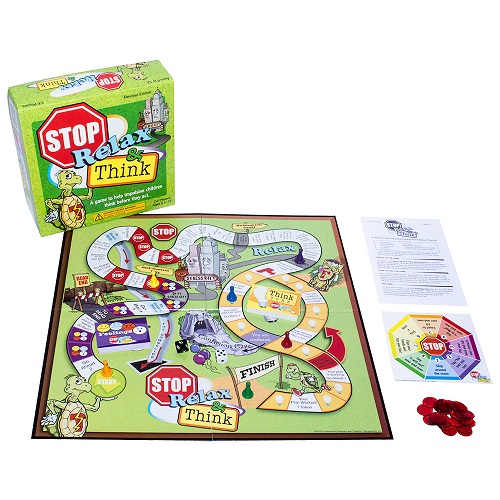 Created by Becky Bridges, C.S.W., A.C.P. In this ever-popular board game, active, impulsive children learn motor control, relaxation skills, how to express their feelings, and how to problem-solve. The manual includes information on how the game can be used both as a diagnostic and a treatment tool, and how behaviors learned in the game can be generalized for the home or classroom. The object of the game is to proceed through the Feelings, Stop, Relax, and Think sections of the game board to Finish, collecting chips along the way. The player with the most chips when the game ends wins.
Created by Becky Bridges, C.S.W., A.C.P. In this ever-popular board game, active, impulsive children learn motor control, relaxation skills, how to express their feelings, and how to problem-solve. The manual includes information on how the game can be used both as a diagnostic and a treatment tool, and how behaviors learned in the game can be generalized for the home or classroom. The object of the game is to proceed through the Feelings, Stop, Relax, and Think sections of the game board to Finish, collecting chips along the way. The player with the most chips when the game ends wins. -
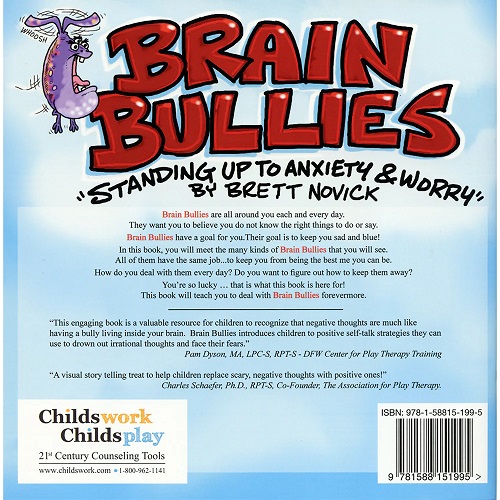
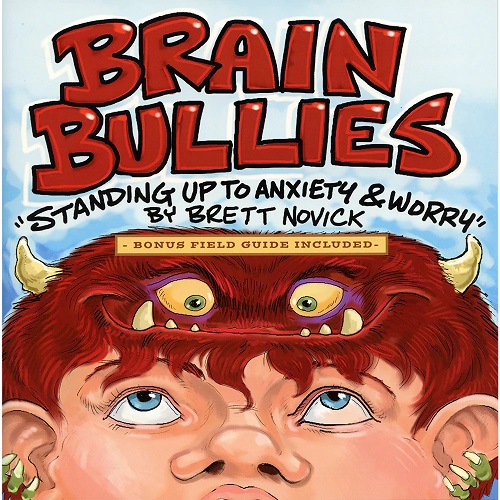 Brain Bullies is an effective tool for introducing the principals of cognitive therapy to children. The creative and colorful illustrations in Brain Bullies helps children identify the cognitive distortions that can make them anxious. The fun and nonthreatening illustrations of the “Brain Bullies” helps children develop an understanding of the internal dialogue that contributes to anxiety and other forms of emotional distress and upset. The most common distortive thought patterns are covered in Brain Bullies.
Brain Bullies is an effective tool for introducing the principals of cognitive therapy to children. The creative and colorful illustrations in Brain Bullies helps children identify the cognitive distortions that can make them anxious. The fun and nonthreatening illustrations of the “Brain Bullies” helps children develop an understanding of the internal dialogue that contributes to anxiety and other forms of emotional distress and upset. The most common distortive thought patterns are covered in Brain Bullies.

